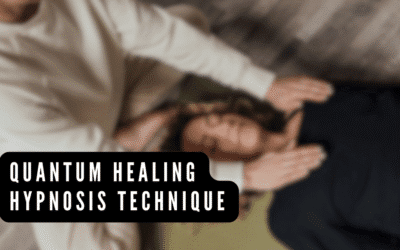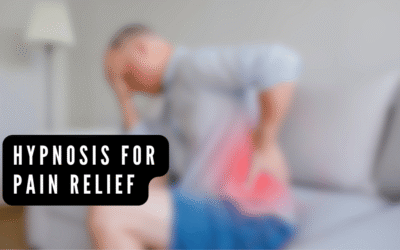The question remains: What does it feel like after a hypnosis session?
The feelings and effects experienced after hypnosis can vary widely from person to person. Some report a sense of profound relaxation and mental clarity, while others might feel temporarily disoriented or even experience unexpected emotions.
These reactions are all part of the process…
In this article, we’ll explore the range of sensations and effects that can occur after hypnotherapy, from immediate physical and emotional changes to longer-term outcomes.
- What to Expect Immediately After Hypnotherapy
- Why Do These Sensations Occur?
- Short-Term Effects in the Days Following Hypnosis
- Understanding Uncommon or "Weird" Feelings After Hypnosis
- Factors Influencing Post-Hypnosis Experiences
- Managing and Embracing Post-Hypnosis Feelings
- Debunking Myths and Misconceptions About Post-Hypnosis Effects
- Long-Term Benefits of Hypnotherapy
- Conclusion: Embracing the Journey of Hypnotherapy
- FAQ
What to Expect Immediately After Hypnotherapy
Hypnotherapy often leaves clients feeling different – but in a good way.
The immediate effects can be both physical and emotional, as the mind and body respond to the session’s suggestions and relaxation techniques. While each person’s experience is unique, there are several common sensations and reactions you might notice right after a hypnosis session.
Physical Sensations
- Deep Relaxation: Many people describe feeling as though their body is lighter or more at ease, similar to the sensation after a deep meditation or restful sleep.
- Tingling or Warmth: Some clients report gentle tingling or warmth in their hands, feet, or other parts of the body as blood flow and relaxation increase.
- Lightheadedness or Slight Fatigue: It’s normal to feel a bit lightheaded or tired immediately after a session, as the mind shifts back to its conscious state.
Emotional Responses
- Calm and Peacefulness: A sense of inner peace and calm often follows hypnotherapy, leaving clients feeling grounded and centered.
- Emotional Release: Some individuals experience a release of emotions, such as crying or laughing, as their subconscious mind processes deeply rooted feelings.
- Unexpected Emotions: Occasionally, a session might bring up emotions clients weren’t anticipating. These are normal and can be an essential part of healing.
Cognitive Changes
- Heightened Awareness: Clients may feel a sharp increase in mental clarity, as if their mind is more focused and organized.
- Subtle Shifts in Perspective: Thoughts or beliefs might feel slightly different, signaling the subconscious is working to align with the suggestions given during the session.
- Mental Quiet: A peaceful stillness often replaces mental chatter, providing a moment of calm that can be deeply refreshing.
Why Do These Sensations Occur?
As you return to a fully conscious state, your body and mind adjust, integrating the suggestions and insights from the experience.
These feelings are typically temporary and part of the process of positive change.
Short-Term Effects in the Days Following Hypnosis
The days after a hypnosis session can bring subtle but meaningful changes. While many clients experience positive outcomes almost immediately, others might notice delayed or evolving effects as the subconscious mind continues to process the session’s work.
Understanding these short-term effects can help you navigate the post-hypnosis period with confidence.
Positive Outcomes
- Improved Sleep: Many individuals report better sleep quality, often falling asleep faster and waking up feeling more refreshed.
- Reduced Stress: A lingering sense of calm and reduced anxiety is common as the session’s relaxation techniques continue to take effect.
- Increased Focus and Motivation: Clients may feel more determined and clear-headed, making it easier to take action on goals or decisions.
- Heightened Self-Awareness: Insights from the session may lead to a deeper understanding of thoughts, emotions, or behaviors.
Potential Discomforts
- Emotional Sensitivity: It’s normal to feel more in tune with your emotions, which can sometimes lead to moments of vulnerability or introspection.
- Fatigue: The mental work done during hypnosis can leave some clients feeling tired, as if they’ve completed an intensive workout for the mind.
- Vivid Dreams: Dreams may become more frequent or intense as the subconscious continues processing thoughts and emotions uncovered during the session.
Variability Among Individuals
The short-term effects of hypnosis can vary widely depending on factors such as:
- Session Goals: The focus of your session—whether stress reduction, habit change, or emotional healing—can influence the aftereffects.
- Personal Sensitivity: Some people are naturally more sensitive to hypnotic suggestions and may notice stronger or quicker results.
- Depth of Trance: A deeper state of hypnosis may lead to more pronounced or lasting effects.
Embracing the Process
These short-term effects are a natural part of the healing and growth process facilitated by hypnotherapy.
Whether you feel energized, introspective, or somewhere in between, the key is to remain open and patient as your mind integrates the changes.
Understanding Uncommon or “Weird” Feelings After Hypnosis
For some, the feelings experienced after a hypnosis session might seem unusual or even a bit strange.
These sensations are perfectly normal and often indicate that the subconscious mind is actively processing changes initiated during the session. Knowing what these “weird” feelings mean can help you navigate the experience with greater ease and confidence.
Feeling Strange or Disoriented
Some clients describe a sense of disorientation or unfamiliarity with their surroundings immediately after a session. This might feel like:
- A Slight Detachment: As if you’re observing yourself or the world around you from a different perspective.
- Time Distortion: Feeling like the session was much longer or shorter than it actually was.
- Mental Fog: A temporary sense of grogginess as your conscious and subconscious minds realign.
Why It Happens: These sensations occur because hypnosis shifts the mind into a deeply relaxed state, and returning to full awareness can feel slightly jarring for some individuals.
Feeling Worse Before Feeling Better
It’s not uncommon to experience an emotional “dip” after hypnotherapy, especially if the session addressed deeply rooted issues. This may include:
- Increased Emotional Intensity: Feeling more sensitive or reactive to situations that previously felt neutral.
- Resurfacing Old Memories: Memories or emotions buried in the subconscious may come to light as part of the healing process.
- Temporary Doubts: Questioning the effectiveness of the session or feeling unsure about the changes being made.
Why It Happens: Hypnosis can bring unresolved feelings or beliefs to the surface, much like cleaning out a cluttered space. This temporary discomfort often leads to greater clarity and resolution over time.
When to Seek Professional Advice
While most “weird” feelings after hypnosis are normal, there are times when reaching out to your hypnotherapist is a good idea:
- If feelings of disorientation, emotional distress, or physical discomfort persist for more than a few days.
- If you feel overwhelmed or unable to cope with the emotions that have surfaced.
- If you’re unsure whether a reaction is typical or need reassurance about your experience.
Factors Influencing Post-Hypnosis Experiences
The way you feel after a hypnosis session can be influenced by several factors, ranging from your personal characteristics to the specific techniques used during the session. Understanding these variables can provide clarity about your unique experience and set realistic expectations for the process.
Individual Differences
Each person’s mind and body respond to hypnosis in their own way. Factors that can shape your post-hypnosis experience include:
- Personality: People who are more open to suggestion and introspection often experience deeper effects.
- Emotional State: Your mood and mindset before the session can influence how you process the experience.
- Previous Experiences with Hypnosis: Those familiar with hypnosis may enter a trance more easily and experience subtler changes, while first-timers might feel more pronounced effects.
Session Content and Depth
The focus and techniques of the hypnosis session play a significant role in shaping post-session outcomes:
- Session Goals: A session addressing stress relief may leave you feeling calm and refreshed, while one targeting deeper emotional issues might trigger introspection or emotional release.
- Depth of Trance: A deeper hypnotic state often leads to stronger sensations and more noticeable shifts, while lighter trances may feel subtler.
The Therapist’s Approach
The style and method of the hypnotherapist can also influence how you feel:
- Authoritarian vs. Permissive Techniques: A directive style may leave you feeling energized and ready for action, while a collaborative, permissive approach might result in a more reflective or relaxed state.
- Therapist’s Tone and Energy: A calming and empathetic therapist can enhance feelings of trust and comfort, shaping your post-session experience positively.
External Factors
Other external elements can subtly impact your post-hypnosis state:
- Environment: The setting of the session, whether it’s a serene office, a virtual space, or a busy location, can influence how grounded or relaxed you feel afterward.
- Time of Day: Sessions conducted in the evening might leave you feeling ready for rest, while morning sessions could energize you for the day.
Managing and Embracing Post-Hypnosis Feelings
Whether you feel deeply relaxed, energized, or emotionally introspective, there are simple strategies you can use to manage these feelings and maximize the benefits of your session.
Self-Care Strategies After Hypnosis
- Rest and Hydration
- Take time to rest, especially if you feel tired or mentally drained.
- Drink plenty of water to support your body and mind during the integration process.
- Avoid Over Stimulating Activities
- Allow yourself time to process by avoiding loud environments, intense conversations, or overwhelming tasks immediately after the session.
- Focus on calming activities like reading, light walking, or meditation.
- Journal Your Thoughts
- Write down any emotions, insights, or thoughts that surface after the session.
- Journaling can help you make sense of your experience and track your progress over multiple sessions.
Reflecting on Insights and Changes
- Embrace Emotional Shifts
- Understand that any emotions you feel, whether positive or challenging, are part of your subconscious working toward resolution.
- Be compassionate with yourself during this period of adjustment.
- Notice Subtle Changes
- Pay attention to shifts in behavior, thoughts, or feelings in the days following the session.
- Even small changes, like a slight reduction in anxiety or improved focus, are signs of progress.
Communicating with Your Hypnotherapist
- Share Your Experience
- Discuss how you felt during and after the session with your hypnotherapist.
- Open communication allows your therapist to tailor future sessions to your needs.
- Ask Questions
- If you’re unsure about your feelings or responses, don’t hesitate to ask for clarification.
- Your therapist can provide reassurance and explain why certain reactions occur..
Debunking Myths and Misconceptions About Post-Hypnosis Effects
These misunderstandings create unnecessary anxiety or expectations. By addressing these myths, you can understand what to expect and approach hypnotherapy with confidence.
Myth 1: Hypnosis Will Leave You Feeling “Out of Control”
The reality is that hypnosis is a state of heightened focus and relaxation, not a loss of control.
Clients remain aware and conscious throughout the session. Post-session effects, such as calmness or emotional shifts, are signs of the subconscious mind processing suggestions, not a lack of control.
Myth 2: You’ll Feel Completely Different After One Session
While some clients experience noticeable changes right away, others may notice more subtle or gradual shifts. Hypnosis often works by creating small, cumulative changes over time.
Myth 3: Feeling Strange or Emotional Means Something Went Wrong
Unusual feelings or emotional releases are a normal part of the process. These reactions indicate that the subconscious mind is addressing and resolving underlying issues.
Temporary discomfort often precedes significant breakthroughs.
Myth 4: Everyone Has the Same Post-Hypnosis Experience
Every individual’s response to hypnosis is unique. Factors like personality, session goals, and depth of trance can influence how you feel afterward.
Some clients feel energized, while others may feel introspective or tired.
Myth 5: Hypnosis Works Like Magic
Hypnosis is a collaborative process, not a quick fix.
It requires the client’s active participation and commitment to change. Post-session effects reflect the work being done by the subconscious, but sustained effort is often needed to achieve lasting transformation.
Myth 6: If You Feel No Immediate Change, Hypnosis Didn’t Work
Immediate change is not the only indicator of success. For many, the effects of hypnosis unfold gradually as the subconscious integrates suggestions.
Patience and self-reflection are key to recognizing progress.
Long-Term Benefits of Hypnotherapy
Here are the long-term benefits of hypnosis – and what can you expect.
Emotional Resilience
- Reduced Anxiety and Stress: Hypnotherapy can help you develop healthier responses to stress, enabling you to remain calm and focused in challenging situations.
- Improved Emotional Regulation: By addressing deep-seated emotional patterns, hypnosis helps you manage your feelings more effectively and maintain balance in your daily life.
Behavioral Changes
- Breaking Bad Habits: Hypnotherapy is highly effective for helping individuals quit smoking, reduce alcohol consumption, or eliminate unhealthy eating patterns.
- Building Positive Routines: Suggestions from sessions can reinforce healthy behaviors like regular exercise, mindfulness practices, and better sleep habits.
Cognitive Growth
- Enhanced Focus and Clarity: Hypnotherapy can sharpen your mental clarity, improving productivity and decision-making in both personal and professional settings.
- Boosted Confidence: Sessions designed to overcome self-doubt can lead to a lasting sense of self-assurance in various areas of your life.
Relationship Improvements
- Better Communication Skills: Hypnosis can help you become more empathetic and understanding, improving your interactions with others.
- Strengthened Connections: By addressing personal insecurities or unresolved emotional issues, hypnosis allows you to build healthier and more fulfilling relationships.
Physical Health Benefits
- Chronic Pain Management: Long-term use of hypnotherapy can help alleviate chronic pain conditions, improving overall quality of life.
- Improved Sleep Patterns: Many individuals experience lasting relief from insomnia or poor sleep quality after regular hypnotherapy sessions.
Sustained Personal Growth
- Continued Self-Reflection: The insights gained during hypnosis often inspire ongoing introspection and personal development.
- Empowered Mindset: Hypnotherapy fosters a belief in your ability to create positive change, setting the stage for future achievements.
Conclusion: Embracing the Journey of Hypnotherapy
Hypnotherapy offers an opportunity to tap into the incredible potential of your subconscious mind, empowering you to overcome challenges, achieve goals, and build a better quality of life.
The changes you seek are within your reach—take the first step and trust in the transformative power of hypnotherapy.
Book a FREE consultation and solve your long-lasting problems right now.
FAQ
What does it feel like immediately after a hypnosis session?
Immediately after hypnosis, many people report feeling deeply relaxed, lighter, or more mentally clear. Some may experience tingling sensations, mild fatigue, or emotional release. These sensations indicate the mind and body are processing the session.
Is it normal to feel emotional or disoriented after hypnotherapy?
Yes, it’s common to feel emotional or slightly disoriented, especially if the session addressed deeply rooted issues. These feelings are part of the subconscious processing and often lead to breakthroughs or greater clarity.
How long do the effects of hypnotherapy last?
The effects vary by individual and session focus. While immediate sensations like relaxation may fade, the underlying changes initiated by hypnosis can develop over days or weeks, leading to lasting transformation.
Can I go back to my regular activities after hypnosis?
Absolutely! Most people can resume normal activities after a session. If you feel fatigued or introspective, take some time to rest and reflect before jumping into demanding tasks.
What are the long-term benefits of hypnotherapy?
Over time, hypnotherapy can enhance emotional resilience, break bad habits, improve relationships, boost confidence, and foster personal growth. Many also experience better sleep, reduced stress, and improved focus.


